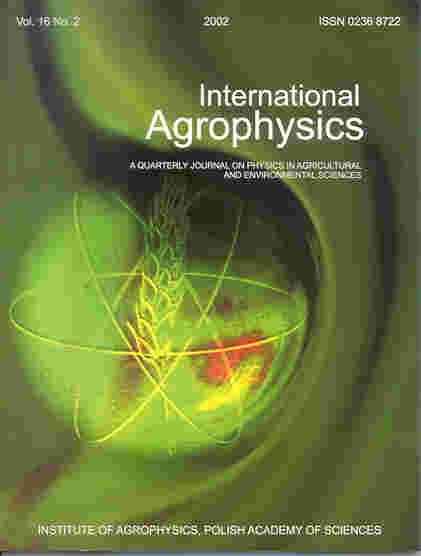|
|
|

|
|
| International Agrophysics |
| wydawca: | Instytut Agrofizyki
im. B. Dobrzańskiego
PAN
w Lublinie |
| ISSN: |
0236-8722 |
vol. 25, nr. 4 (2011)
|
|
|
poprzedni artykuł wróć do listy artykułów następny artykuł
|
|
|
Effect of salinity and zinc on physiological and nutritional responses of rosemary
|
|
| (pobierz wersję PDF ) )
|
|
|
M. Hejazi Mehrizi1, H. Shariatmadari1, A.H. Khoshgoftarmanesh1, A. Zarezadeh2
|
|
|
1 Department of Soil Science, Shahid Bahonar University, Kerman, Iran |
|
|
2 Department of Natural Resources, Yazd Agricultural and Natural Resources Research Center, Yazd, Iran |
|
|
vol. 25 (2011), nr. 4,
pp. 349-353
|
|
|
streszczenie
This study was conducted to investigate the effect of zinc nutrition on growth, leaf relative water content, membrane permeability, and nutrient uptake of rosemary grown under saline condition. A factorial arranged hydroponics experiment with 3 salinity levels, and 3 levels of zinc was performed. At 0 and 2 µM Zn levels, salinity significantly decreased the leaf relative water content. Salinity treatment increased membrane permeability, Na, Cl and P uptake, accompanied by significant decreases in plant growth, relative water content, and K, Ca and Mg concentration. These changes were greater at the 0 and 2 µM Zn levels compared to the 4 µM Zn treatment. Increases in Zn concentration from 0 µM to 2 and 4 µM counteracted the deleterious effect of salinity on relative water content, membrane permeability and ion uptake. The results showed that Zn nutrition is involved in maintaining of membrane permeability and ion-selective uptake which could improve or accelerate the adaptation of rosemary to salt stress.
|
|
słowa kluczowe
rosemary, salt stress, zinc nutrition, oxidative damage, nutrient uptake
|
|
|
|
|
|
|